Describe the flow of data from the sales order into the delivery for header and item and schedule line level data?
Header
Item Header, Item.
Schedule line Item.
Can you combine several sales orders into one delivery document ? If no, why not? If yes, would the system check certain criteria? What criteria?
No. When ship-to party or plant is different.
Yes. Availability of all items are confirmed.
Name a few prerequisites that have to be fulfilled if you want to create a delivery for the order.
Header Level
There cannot be a delivery block at header level.
The sales document must contain at least one item due for delivery before a delivery can be created for this document.
Item Level and Schedule Line Level
The schedule line must be due for shipping on the specified selection date.
A schedule line becomes due for shipping as soon as the material availability date or the transportation scheduling date is reached.
The schedule line cannot be blocked for delivery.
The delivery quantity must be greater than one.
The items in the order must be fully processed.
If they are incomplete, you must first edit the incompleteness log in the order. You will find information on the incompleteness log in the R/3 SD online documentation on sales.
The product status of the material must permit delivery.
For example, the product status for new products which have not been released for delivery does not allow them to be included in a delivery.
Sufficient quantity of the material must be available.
If you create a delivery, would this automatically update the sales order?
Yes. The delivery status of the entire order results from the delivery status of the items. Until all items in the order have been fully delivered, the order has the status “Partially delivered”. The entire document acquires the status of fully delivered once all the items have been fully delivered.
Name the different ways of creating deliveries.
Partial Deliveries, Complete Deliveries, Deliveries without reference, Grouped Deliveries.
How does the system determine the shipping point and the route in the sales order?
A shipping point can be determined for each order item. How the shipping point is determined depends on three factors:
The shipping conditions from the customer master record (Shipping screen). A condition might be that the goods are to be delivered to the customer as soon as possible.
The loading group from the material master record (Sales/Plant Data screen).You could, for example, specify a loading group that defines that the goods must always be loaded with a crane or a fork lift.
The delivering plant. This plant is determined per order item either from the customer master record or from the material master record. However, you can also enter it manually for each order item. You will find detailed information on determining the delivering plant in the sales order in the R/3 SD online documentation on sales.
Can you change the shipping point determined in the sales order manually?
Yes.
If you have several shipping points in a sales order at item level. What would that have on the delivery?
Each item will individual deliveries.
Why would you carry out route determination in the delivery again?
To reconfirm the weight of the item.
At which different levels can you specify pick/pack and loading time?
Shipping point determination level : loading time.
Route determination level : pick/pack time.
Where do you specify the departure zone and the arrival zone for route determination?
Shipping point, Ship-to party.
How can the route influence the material availability date?
Transit time & Transportation lead time.
Why would you carry out availability check in the delivery?
The availability check is calculated using planned inward and outward movements of goods. Therefore the delivery situation might have changed in the meantime due to unforeseen circumstances, such as lost output. The availability check in the delivery takes any such changes into account.
Where would you store partial/complete shipment agreements and over/under delivery tolerances?
Customer Master and Customer Material Information.
Explain the effects of printing out the picking list.
Updates the picking quantity in the delivery.
How does the system automatically determine the picking storage location in the delivery?
Storage Condition.
Shipping Point.
Plant.
What is a transfer order and for what would you use it?
Document used to support every stock movement in the warehouse.
It contains all the important movement data, such as the material to be transferred, the quantity to be transferred, the storage bins involved, and so on
Define a shipping unit?
Combination of materials which are packed together in a shipping material at a particular time. Shipping units contain items which in turn are made up of shipping units or delivery items.
What effects does goods issue have?
When the goods have left your plant, the business transaction is regarded as completed from the point of view of shipping. When goods are issued, the following functions take place in the system:
The material stock is reduced by the goods issue quantity and the corresponding value changes take place in accounting. This ensures that the quantity and value flows are parallel.
Material requirements for the delivery are reduced
The delivery status is updated
If you bill after goods issue, the delivery enters the billing work list
How can you delete a good issue?
You cannot cancel a goods issue posting in isolation. You are also unable to change goods issue quantities. If you make a mistake when processing a delivery, or if the goods are damaged leaving your plant and cannot be delivered, you must cancel the entire business transaction.
Procedure
After you have invoiced the delivery, for which the incorrect goods issue posting was carried out, proceed as follows:
1. Enter a returns order (order type RE) for the customer and the material involved.
2. Create a returns delivery for the returns order. The system proposes the delivery type. The delivery quantities in the returns delivery must correspond to the goods issue quantities in the incorrect goods issue document.
3. Post “goods issue” for the returns delivery. The system automatically recognizes the returns delivery as goods receipt and clears the original goods issue posting by carrying out reverse posting.
4. Invoice the business transaction with a returns credit memo. The system proposes billing type. The original billing document for the incorrect goods issue document is cleared by this credit memo.
Is it possible to work without specifying a pick/pack or loading time for a shipping point?
Yes.
When do you initiate packing activity-before or after goods issue? What is the material type for shipping material?
Before goods issue . VERP.
When you post goods issue after packing, which two documents do you create?
Picking List, Invoice.
Can the delivery quantity and the picking quantity in the delivery document be -different?
Yes.



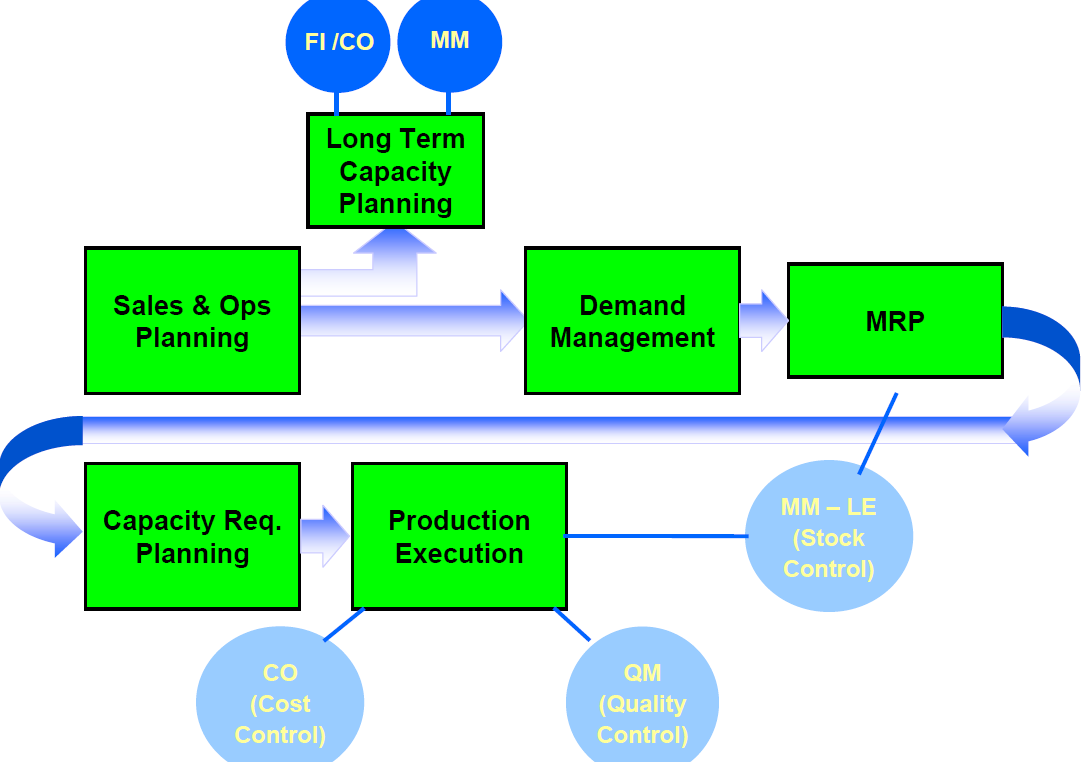
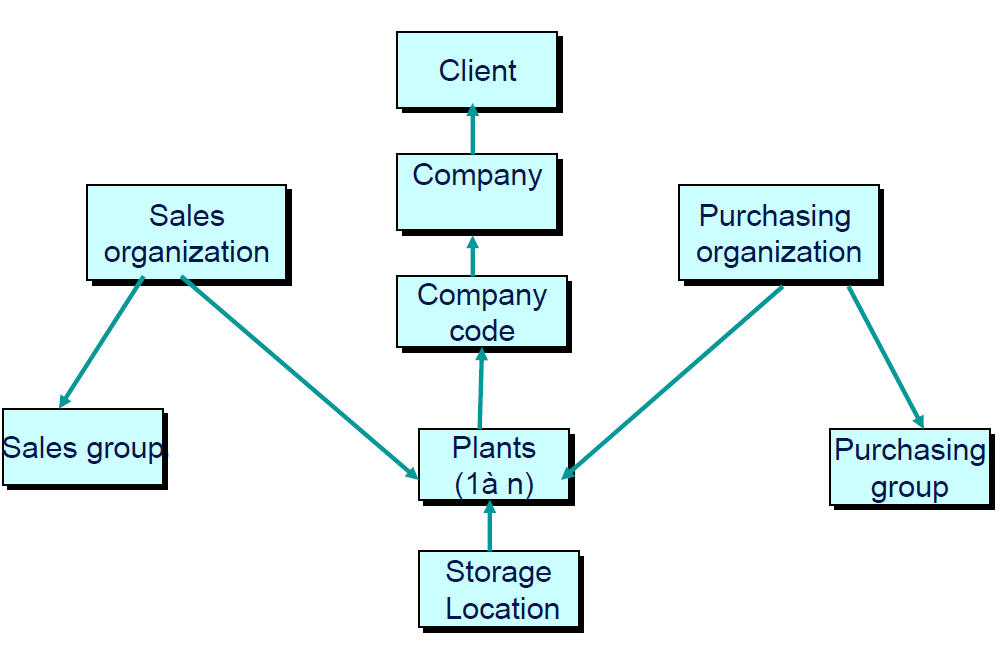
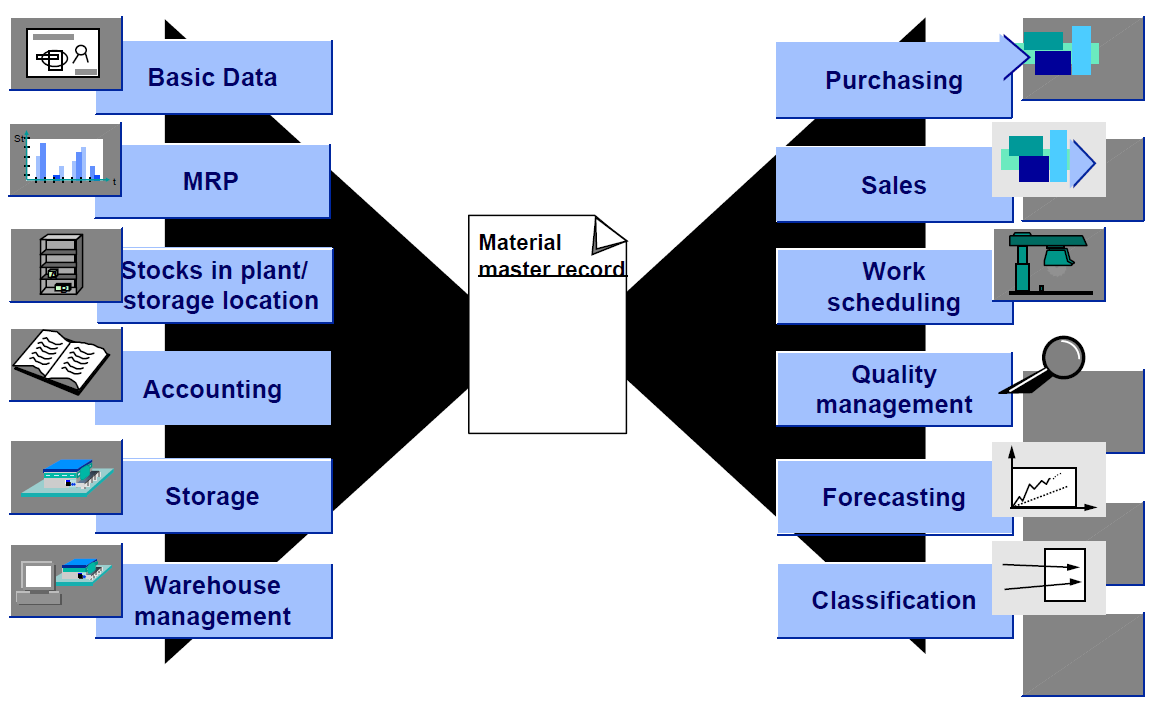
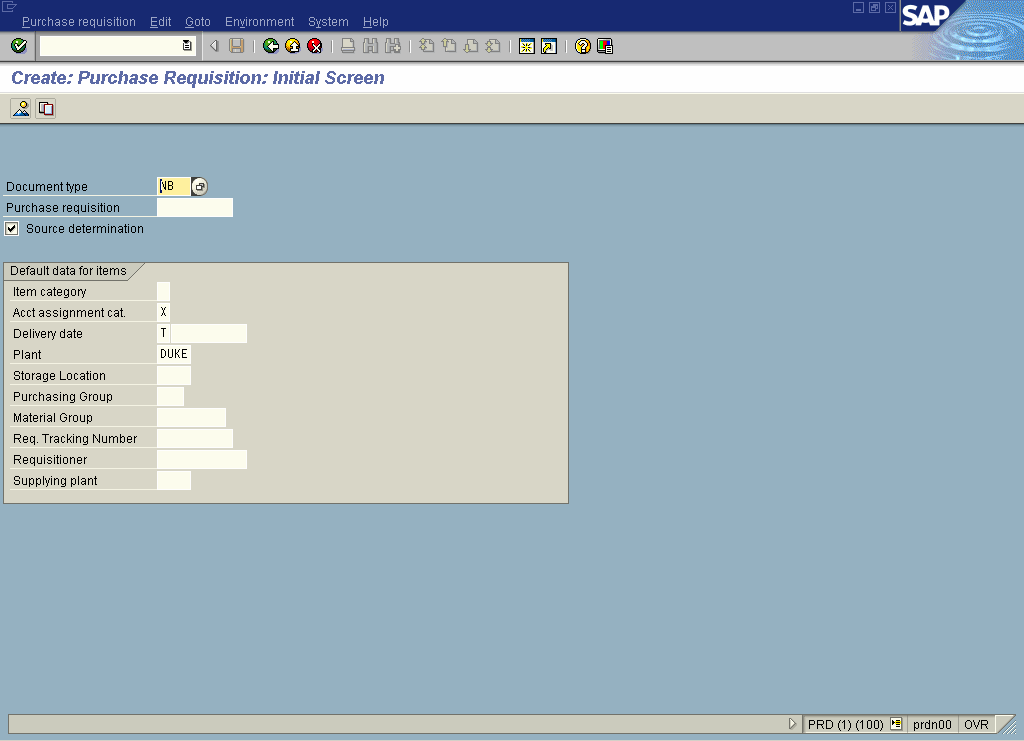
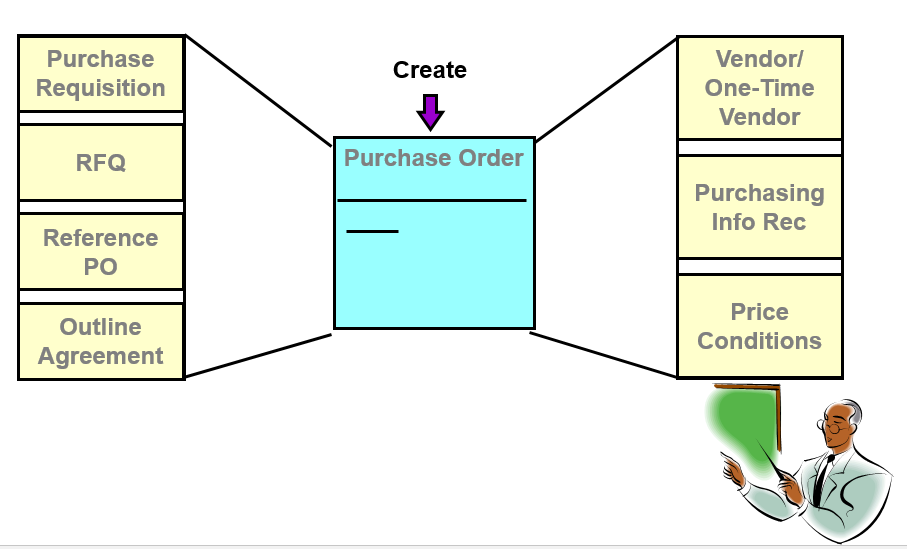
Leave a Reply